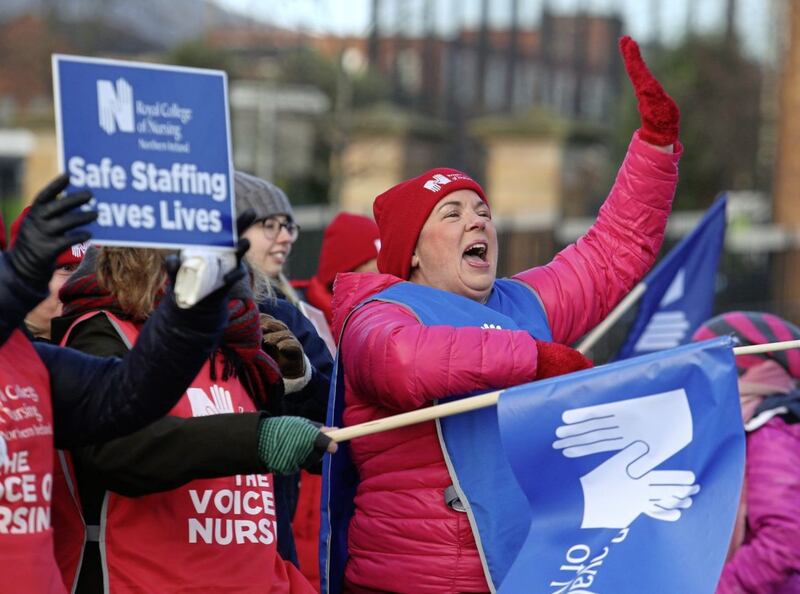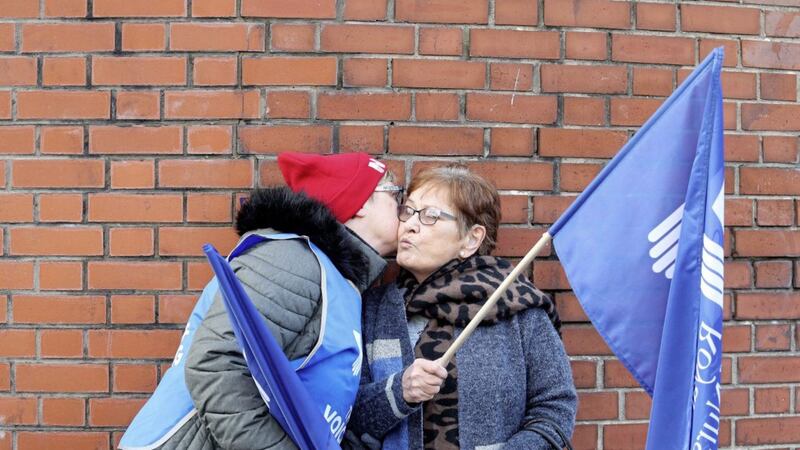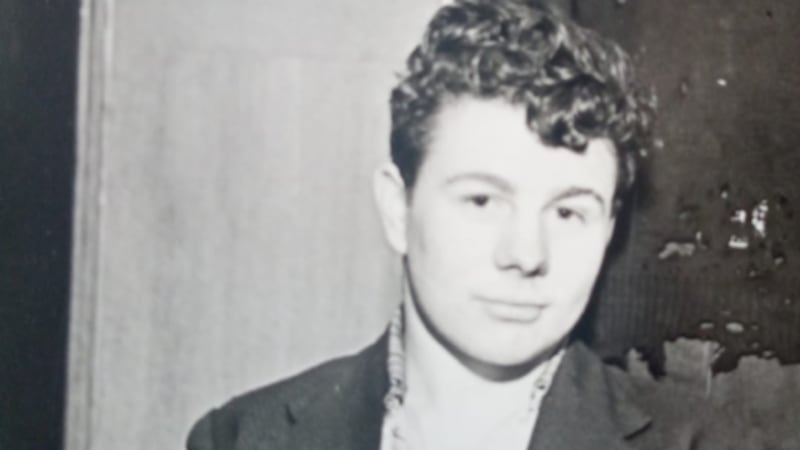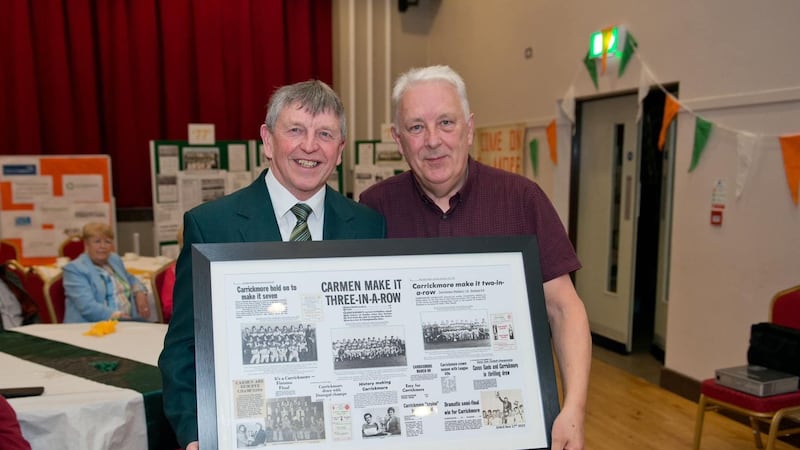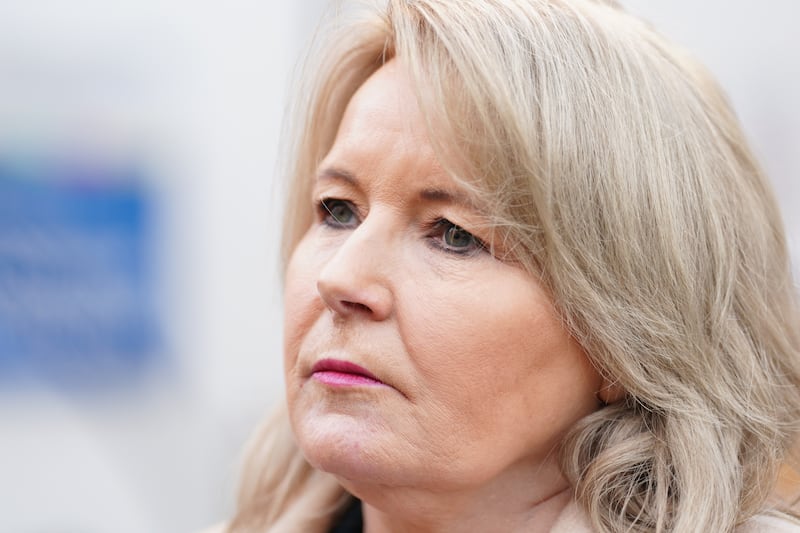STRIKING nurses spoke of their "despair" on the picket lines yesterday as the deadlock over their staffing and pay dispute continues.
However, many of those taking part in the 12-hour walkouts insisted they will continue to strike - despite losing wages - after they have "come this far".
Around 9,000 members of the Royal College of Nursing (RCN) joined its second phase of action, ignoring eleventh-hour pleas from health trust bosses to postpone amid warnings the system could be pushed "beyond tipping point".
Frontline nurses reacted with fury to the comments, with RCN chief Pat Cullen saying the health service is already at "tipping point" and accusing NHS management of using "bullying" language.
"There's no doubt in any nurse's mind that what health chiefs said was an attempt to silence the voice of nursing on behalf of patients. What we can see on the picket lines is that they didn't achieve that," Ms Cullen told The Irish News.
"Nurses have been telling these very managers for years that the health service in crisis, they didn't need to be told that."
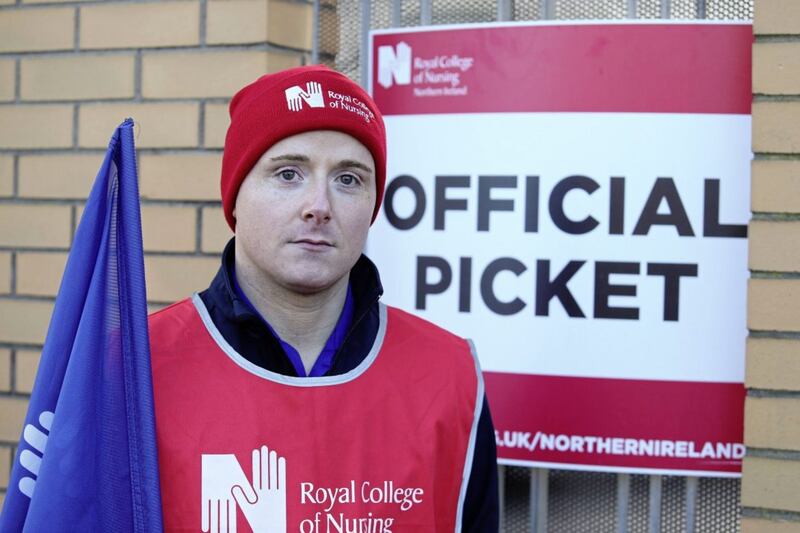
Outside Northern Ireland's biggest hospital, the Royal Victoria in Belfast, David Ferran said the mood was "more sombre" than last month's strike day, the first in the RCN's 103-year history.
"It's very different from December 18, staff are frustrated. There is despair as we didn't think this would happen again. Some nurses are single parents and are losing three days pay," he said.
"We had thought there would be a resolution but when there was no deal by Christmas Eve, we knew that was it.
"We are well used to saying sorry to patients, we walk round departments every day apologising for delays, so we are saying sorry again but we have to do this to improve patient care. We've come this far, we are determined to keeping going."
Around 2,000 appointments were cancelled due to the strike while some special needs schools were closed as a result of lack of medical cover.

Rachel Smyth, a ward sister on a busy medical admissions ward in the Mater hospital in north Belfast, said severe staff shortages had resulted in a system that is "unsafe most days" and where they are forced to "block book" agency staff.
When she first qualified seven years ago, Ms Smyth said she had to move to Newcastle to get work as there were no jobs. Now there are almost 3,000 empty nursing posts in the north.
"The days I enjoy are when I know I can keep people safe but there are a lot of days when we don't know what we're coming into and care is compromised. We're relying on goodwill of staff and that isn't enough. When the RCN asked us to vote on strike, I voted yes as I thought it's the only way anyone will listen," she said.
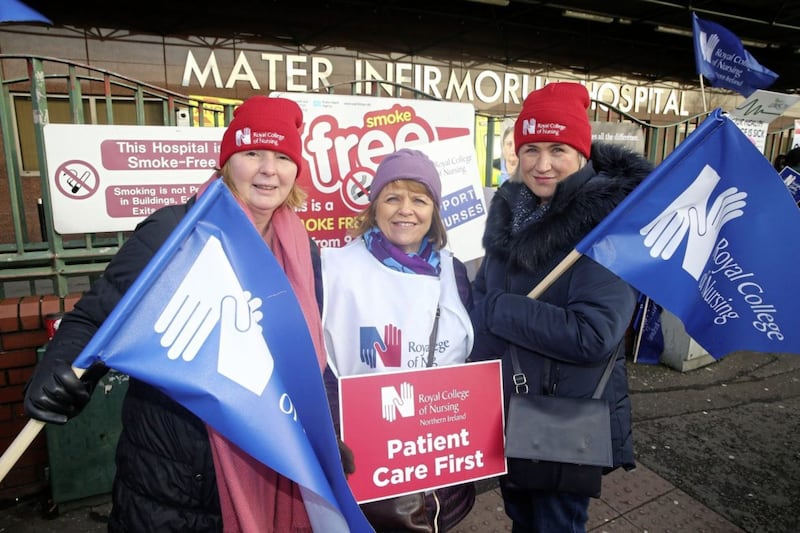
Read more:Analysis - Stormont deal urgently needed to rebuild broken healthcare system (premium)
Meanwhile, three specialist nurses with almost 100 years' experience between them also hit out at a reliance on agency staff, which they attributed to poor workforce planning.
Brenda Crummey and Gale Gartisde, who are diabetic nurses, along with Lynn O'Hara, who works with heart failure patients, expressed their concerns about the future of the profession due to serious problems in trying to attract and retain new staff.
"I work in the community and sometimes your heart goes out to nurses when you go into the ward and see the shortages. We're highly skilled nurses and are able to prescribe to patients but we are nearing retirement age and need to get new staff in," Ms Crummey said.
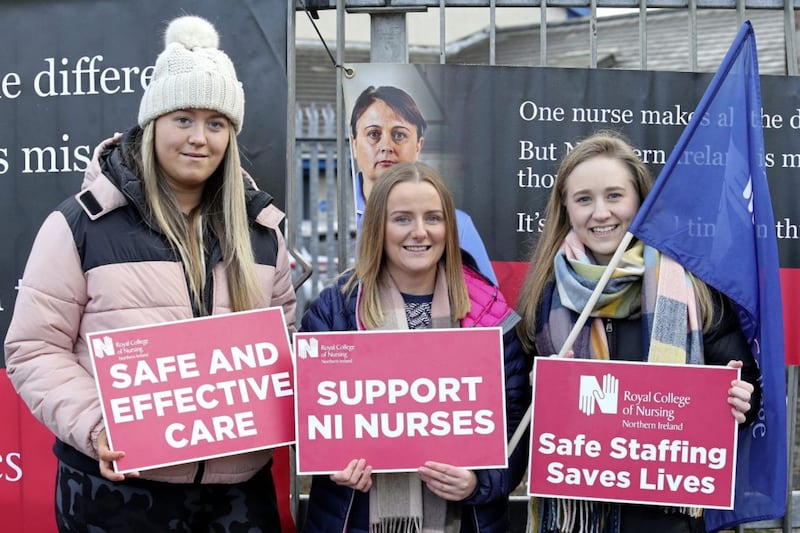
A newly-qualified nurse based in the Royal's paediatric cardiology unit, Robyn Poots, also reflected on the pressures of working in an under-staffed unit caring for sick children, saying it was "overwhelming" at times.
She and two colleagues, Hannah Jones and Sarah Hagan, said many of their nursing friends were considering moving to England where "pay and conditions are better".
"We love our jobs but we are supposed to be two staff to one in a High Dependency Unit which never happens. Your want to be spend more time with the patients but it's difficult and there are very few breaks," Ms Poots said.
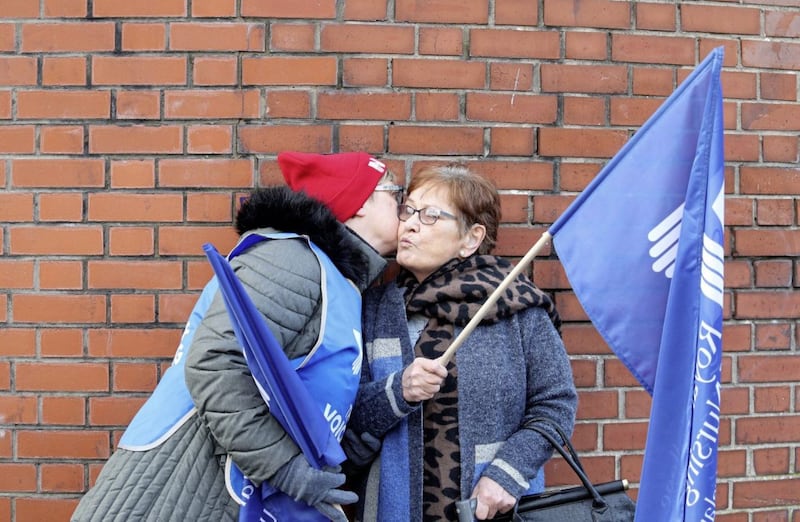
As a 69-year-old former breast cancer patient joined the Royal's picket line yesterday, she reduced one nurse to tears when she said: "I'm here to support you as you're overworked and underpaid."
The Department of Health has said budgetary constraints and lack of authority prevent them from meeting the unions demands for pay.
"It is a matter of public record that the department continues to offer talks with unions to find a way forward."
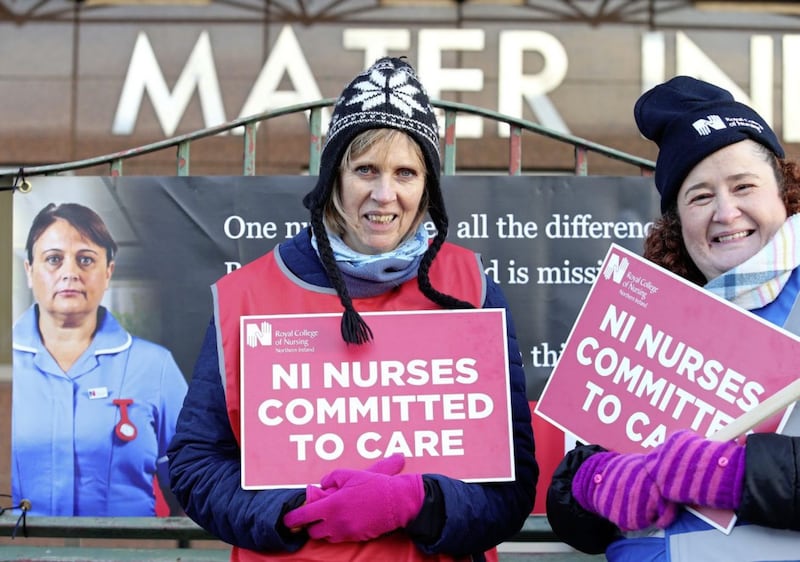
The head of the South Eastern Health Trust, Seamus McGoran, called yesterday for the urgent restoration of Stormont to meet demands for pay parity.
He said he wanted to make it clear on behalf of the chief executives of all the health trusts that they support their staff and what he termed "their legitimate claim for pay parity with their colleagues in England".
"They are incredible people, they do a fantastic job for our patients and we believe they should be rewarded in the same way as colleagues are in other parts of the UK," he said.
Read more:Analysis - Stormont deal urgently needed to rebuild broken healthcare system (premium)
